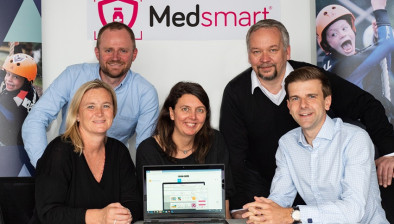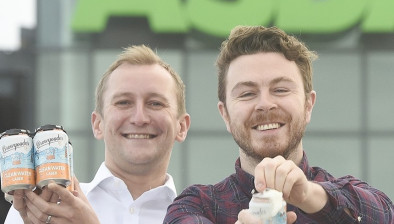Glasgow university spin-out SOLASTA Bio secures £1.3m funding from investors

Professor Shireen Davies
SOLSTA Bio, a Glasgow University spinout specialising in the next generation of green insecticides, has secured seed investment of £1.3 million to support ongoing development of its unique nature-inspired pesticides, the first of their kind to be developed worldwide.
Investors in this seed funding round include The Yield Lab Europe, SIS Ventures, members of Cambridge Agritech and UKI2S, who also provided access to the UKI2S managed Innovate UK Sub Fund grant. Founding investors UKI2S and Scottish Enterprise provided pre-seed funding.
With this latest funding secured, SOLASTA Bio is aiming to take the trials of its biopesticides out of the laboratory and into real-world settings. The company aims to bring its first biopesticides to market in 2027, around half the time traditionally taken by synthetic pest control products.
Established in May 2020 after four years of research funded by UKRI BBSRC and the EC, and commercialisation support from Scottish Enterprise’s High Growth Spinout Programme, SOLASTA Bio develops environmentally-friendly products that meet a global need for new and effective crop protection. These biopesticides also preserve the ecosystem by protecting beneficial insects such as bees.
The company has developed the world’s first technology platform for creating neuropeptide-based insect control products that are nature-inspired rather than selected from a synthetic chemistry library.
These products effectively target insect pests while preserving beneficial pollinators such as bees in an environmentally friendly and sustainable manner. Disturbance of target physiological processes by neuropeptide-based bioinsecticides leads to death in pest species. SOLASTA Bio’s platform can be mobilised for any pest of interest.
The company was co-founded by award-winning scientist and entrepreneur Professor Shireen Davies, CEO, world leader in insect biology and functional genomics Professor Julian Dow, CSO, former BASF senior executive Paul Bernasconi, CTO; and Professor Robert Liskamp, peptide technology. The three management team co-founders are joined by the Chair, Rob Wylie and CFO David Armour, with a team of R&D staff based in Glasgow.
The global insecticides market is currently dominated by synthetic chemicals accounting for 94% of insect control solutions, with a projected 2022 value of $22 billion.
While 75% of food crops are dependent on pollinator insects, other insects cause enormous social, health and economic damage accounting for at least $70 billion in US crop losses alone. However, the insecticides market is under increasing pressure from widespread insect resistance, lack of species specificity, increasing regulatory controls and consumer preferences for non-chemical residues.
Professor Shireen Davies, CEO, SOLASTA Bio, commented: “The global market for insecticides has been under intense scrutiny for many years now, with growing demands on food production requiring greater levels of crop protection, counterbalanced by heightened concerns for the environment. Through our proprietary technology platform, we have developed a world-leading solution which represents a profound change for how insect control agents are discovered, and a step change in how we not only protect our crops worldwide, but also our ecosystem. This seed funding now allows us to accelerate our R&D plans and move towards Series A in 2022.”
Nicky Deasy, managing partner at The Yield Lab Europe, said: “We are delighted to back SOLASTA Bio and lead this round, and I look forward to working with Shireen and the team to help them successfully commercialise this important technology.”
Rob Halliday, senior investment manager, SIS Ventures, added: “SIS Ventures is proud to welcome SOLASTA Bio to our outstanding portfolio of Scottish mission-led businesses and we look forward to working closely with the world-class management team and our co-investment partners towards realising SOLASTA Bio’s significant potential.”
Victoria Carmichael, director of strategic investments at Scottish Enterprise, said: “The rate at which Scotland’s academic institutions continue to produce game-changing spinouts is staggering, with SOLASTA being another great example of an entrepreneurial culture that transforms world-leading research into real-world applications.”









